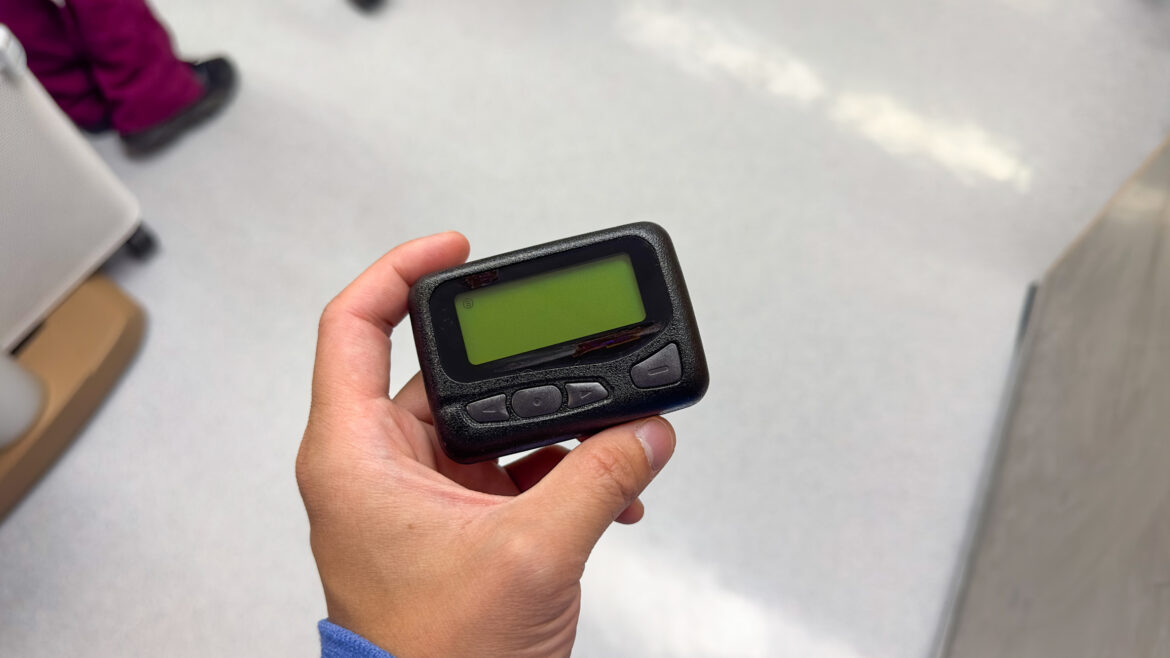Advertiser & Editorial Disclosure: The Bulkhead Seat earns an affiliate commission for anyone approved through the links below. This compensation may impact how and where links appear on this site. We work to provide the best publicly available offers to our readers. We frequently update them, but this site does not include all available offers. Opinions, reviews, analyses & recommendations are the author’s alone, and have not been reviewed, endorsed, or approved by any of these entities.
Thousands of pagers and walkie-talkies exploded earlier this week in a deadly attack against Hezbollah this week. Lebanese authorities have now banned these devices from being brought on planes and airlines flying there are instructed to inform passengers about these restrictions.
The ban does not allow pagers and walkie-talkies to be transported in carry-on bags, checked luggage, or through air shipping. Two attacks in Lebanon this week are at the heart of this ban. On Tuesday, Hezbollah operatives saw their pagers explode. This killed at least 12 people and injured thousands. Yesterday, walkie-talkies exploded and killed at least 25 people while injuring hundreds. It’s suspected that Israel planted explosives in pagers and walkie-talkies months ago and then remotely detonated them with a code. Reuters reports that this ban is in effect until further notice. Walkie-talkies and pagers are pretty irrelevant to most people in the United States (and most of the world).
Effective immediately: Following the directive received from the Directorate General of Civil Aviation of the Republic of Lebanon, all passengers flying from Beirut Rafic Harirl International Airport (BEY) are prohibited from carrying pagers and walkie-talkies on board flights.…
— Qatar Airways (@qatarairways) September 19, 2024
Bans on electronic devices are nothing new. In March 2017, an electronics ban was issued by the United States government. Electronics larger than a mobile phone were not allowed in carry-on bags departing from 10 airports in the Middle East and traveling to the United States. The order was issued based on intelligence that Al-Qaeda was planning on using batteries and compartments of large electronic equipment to conceal explosives. This did not take into account the fire risk of lithium ion batteries in the cargo hold. Thankfully, it was short lived. The ban was lifted in July 2017 by the US government based on improved airport security.
Anthony’s Take: We’ll have to wait and see how long this policy lasts and if other countries adopt similar bans.
(Featured Image Credit: Isaac Lee.)
User Generated Content Disclosure: The Bulkhead Seat encourages constructive discussions, comments, and questions. Responses are not provided by or commissioned by any bank advertisers. These responses have not been reviewed, approved, or endorsed by the bank advertiser. It is not the responsibility of the bank advertiser to respond to comments.
Advertiser & Editorial Disclosure: The Bulkhead Seat earns an affiliate commission for anyone approved through the links above This compensation may impact how and where links appear on this site. We work to provide the best publicly available offers to our readers. We frequently update them, but this site does not include all available offers. Opinions, reviews, analyses & recommendations are the author’s alone, and have not been reviewed, endorsed, or approved by any of these entities.
